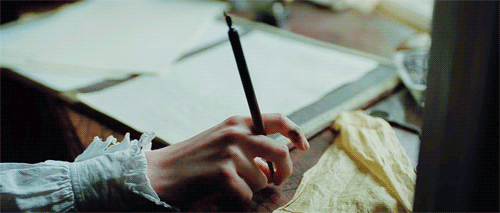Beginnings. They can be the easiest part of writing a new story, or they can be hardest. And there are so many incredible first pages out there. What makes those first few pages so compelling?
I’ve thought about this often, especially since I teach a class called “Great Beginnings” at the Muse Writer’s Center. In fact, I’ve studied the concept of beginnings extensively, pouring over craft books, going to conferences, and spending hours tucked between my library’s shelves, opening book after book to read the first few pages. After more hours of study than I can count, I’ve learned that almost every great beginning has four specific things in common.
- A hook (especially if you’re a new, unestablished writer)
- Setting to ground the reader
- Introduction to a Main Character (note the word Introduce)
- Clues to the story’ genre and theme
- A story problem with an emotional impact
It sounds simple until you need to squeeze all four factors into one page. One page is about 250 words. Around 75 sentences. Three, four paragraphs tops. How do you do this in a few paragraphs? After numerous blunders and a few successes, I’ve come up with a formula for a solid first page.
first line hook+ interesting world detail + character introduction + instant emotional distress.
I know, it sounds mean, instant emotional distress. But it works.
The first line hook is simple: write a single line that demands readers’ attention.
Subtle world building is important too, especially in fantasy, which tends to be where my work lands. No matter what genre your story is, it’s important to remember what makes world details important at this stage of the story. It isn’t the world details themselves, but how the main character views those world details.
The character’s voice has it’s moment to shine in a first chapter. Readers learn about characters based on what type of words they use and what they talk or think about. An adult will think about different things than a child will, and someone from the 1880’s will speak with very different phrasing than someone might today. Clues to what kind of story your telling can be given through word choice and tone, which can establish a creepy/funny story. A comedy probably won’t start on a dark, rainy night, but a scary story might. A middle grade comedy might start in a treehouse on a summer afternoon. It’s incredible how powerful word choice can be.
The backbone of this formula is the emotional distress. What does the character want, and why can’t they have it. What do they want to protect, or save, or gain, and what do they have to loose.
It’s easy to jump in to the “big” story problem, but in those first pages it’s best to use what I call a “perspective” problem. Something that matters to the main character on a small scale. Something that allows readers to get to know your awesome MC (main character) while also giving the reader time to care about what happens to the MC.
This “perspective” problem happens in so many books I couldn’t possibly name them all. In Harry potter, Harry is mistreated by his caretakers. Wizardry is non existent until Hagrid shows up. In the Hate You Give, Starr is regretting going to a party and worried about her social place in the world. A friend getting shot by the police isn’t a flicker in her mind. If we didn’t have those first chapters to get to know these two incredible characters, what happens to them later wouldn’t have as much impact.
That’s the magic of incredible beginnings–making the ordinary extraordinary, and the extraordinary relatable.
Hope this helps someone as much as it’s helped me. I’d love to hear other takes on great beginnings too!
Keep writing everyone,







